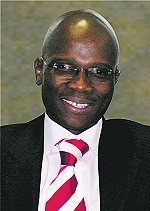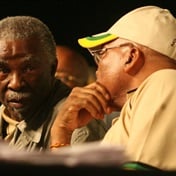
Adopting two or three languages as the country’s official ones could help break cultural barriers and build a collective identity
The recent demand by the people of Malamulele, a predominantly Shangaan/Xitsonga-speaking rural township in Limpopo, for their own municipality has been prominent in public discourse. But it has been reduced to whether a municipality at Malamulele is viable, given the size of the population and the revenue potential.
Framed in this way, the matter has been turned into a technocratic institutional issue.
In certain circles, the issue has been simply understood as a tribal conflict between Vendas and Vatsonga/Shangaans.
To reduce the demand for a municipality to tribalism is to oversimplify the issues. In the same vein, to deny the existence of tribal consciousness is to ignore how economic-class interests are sometimes mediated through tribal and other identities.
The demand for a municipality by the people of Malamulele is borne out of economic demands articulated in cultural terms. In other words, this is a reflection of inter- and intraclass struggles for basic services, jobs and other economic needs mediated and interpreted through tribal lenses.
These economic demands also provide tribal entrepreneurs with raw material to use tribal identities to mobilise mass power to gain political and economic power.
These tribal phenomena have brought back into focus the question of how to build a nation in a democratic South Africa.
The resurrection of different forms of cultural consciousness does not just demonstrate our ANC government’s failure to resolve our economic problems, it is also a manifestation of our inability as the ANC-led movement to provide answers to these seminal national questions in post-apartheid South Africa.
The ANC is unintentionally retribalising South Africa in different ways. This has set conditions for the reawakening of a politically regressive tribal consciousness, which not only impedes the rise of national consciousness but, more importantly, of class consciousness as well.
While it is important to deal with the material conditions (land redistribution, access to basic services, etc) that set a conducive environment for tribalism, one also needs to focus on issues such as language as part of nation-building to facilitate better conditions for class consciousness.
Language can be an important instrument in fragmenting or constructing a nation and a class, since it plays a key role in identity formation, collective action and class consciousness.
Nation-building should include the adoption of two or three official languages (lingua francas), which should include English and one or two African official languages that are spoken by all South Africans.
This is not to suggest the resolution of the national question simply lies in adopting the suggested official languages, neither does it entail the banning of indigenous languages.
It simply means that adopting two or three languages as our country’s official languages could set the necessary (but not sufficient) conditions for a common national identity and nation-building. Other indigenous languages should continue to exist as national languages, but not as official ones. In this context, Afrikaans would be a national language.
During the apartheid era, Africans were designated to live in Bantustans according to their cultural groups, while in townships such as Soweto and Soshanguve they were grouped according to their linguistic identities.
The Inkatha Freedom Party and other Bantustan political parties mastered the art of using cultural identity to divide the nationally oppressed and working class in urban and rural areas – and in so doing, diminished the national and working class consciousness.
Apartheid legislative acts also disrupted a process of new-identity formation, which was emerging among black South Africans.
Understandably, the nationalist movements have never adopted an overarching African language as a language of resistance, which could also be potentially used as a post-colonial language. Instead, they appropriated their colonisers’ languages to articulate their demands.
English in South Africa became the language of the resistance, revolution and empowerment. Discussion on ethnicity was discouraged to maximise the unity of the racially oppressed and to undermine apartheid colonial identities. The language question was acknowledged, but not fully resolved.
In the democratic era, these spatial patterns and geopolitical boundaries – which enforced territorial ethnicity and coincided with language – have been reinforced. That is to say, geographic spatial names in post-apartheid South Africa still coincide with the tribal identities of the inhabitants.
Even some institutions of higher learning, such as the universities of Venda and Zululand, have retained their tribal identities. These names and boundaries undermine our sense of national unity and identity.
Retaining apartheid names and renaming geographical spaces in this way deepens apartheid cultural consciousness.
There is also a rise of ostensibly clan-based groups, which have annual and other cultural activities.
These acts of ethnonationalism seem to suggest that while cultural nationalism has been defeated in its Bantustan forms, it has now developed a life in civil society.
If we are serious about nation-building, we must relook at the question of common languages.
Apart from our Constitution, our national currency, national flag, anthem, identity documents, common territorial geographic boundary, common experience of oppression (as black people) and the same voting roll, what else do we share as South Africans? What makes a South African typical regardless of her/his skin colour, religion, culture, gender and class?
In addition to the core values entrenched in the Constitution, we argue that language as one of the critical nation-building mechanisms has huge potential to build a common South African identity.
The post-apartheid language policy formally treats all languages as equal.
In reality, English is the language of the dominant political economy in this country. The other constitutionally recognised languages are generally only spoken in certain geographic areas, making it difficult for all South Africans to share a common linguistic identity and communicate with ease.
Our nation-building should be based on the notion that everyone can be South African. Our identity should not be anchored in linguistic exclusivity or other social identities.
Being a typical South African should not be about colour, but should posit an ability to speak the two or three South African common languages that enable us to communicate with each other with ease. One or two native black African languages and English should constitute these common languages.
Why English? Firstly, despite its colonial origins in South Africa, English has been the language of the national liberation struggle, albeit concentrated among a few elite. Its use is rapidly growing among the black middle class.
Furthermore, while it is not spoken in the entire world, it is used in significant parts.
Many post-colonial African countries, such as Tanzania, also adopted their erstwhile colonisers’ languages as their official languages with varying degrees of success.
The possibility of English being the language of a tiny elite, excluding the majority, is real. The solution is not to maintain narrow tribal languages. Instead, it is to make access to education, including these languages, free and compulsory.
We could start by harmonising and standardising the Nguni and Sotho languages to produce two African languages.
Xitsonga should be synchronised into the Nguni language, while Tshivenda should be part of the synchronised Sesotho language. In the final analysis, South Africa would have two native African black languages. This has the potential to set the conditions for a new South African identity.
But there will be obstacles in the way of this nation-building project. It will require time and resources to be fully completed.
Another obstacle will be resistance from white and black linguistic cultural nationalists. Furthermore, educationists who specialise in these indigenous languages, as well as tribal traditional leaders who profit from the cultural linguistic nationalism, will mount a fight against these ideas.
Politics and change is not just about the art of the possible; it is about political will and struggle. Nation-building is a struggle.
Masondo is the former Young Communist League national chairperson. This edited article first appeared in African Communist
Do you agree with the idea of having two or three official languages? If so, which ones would you pick?
SMS us on 35697 using the keyword NATION and tell us what you think. Please include your name and province. SMSes cost R1.50




 Publications
Publications
 Partners
Partners








